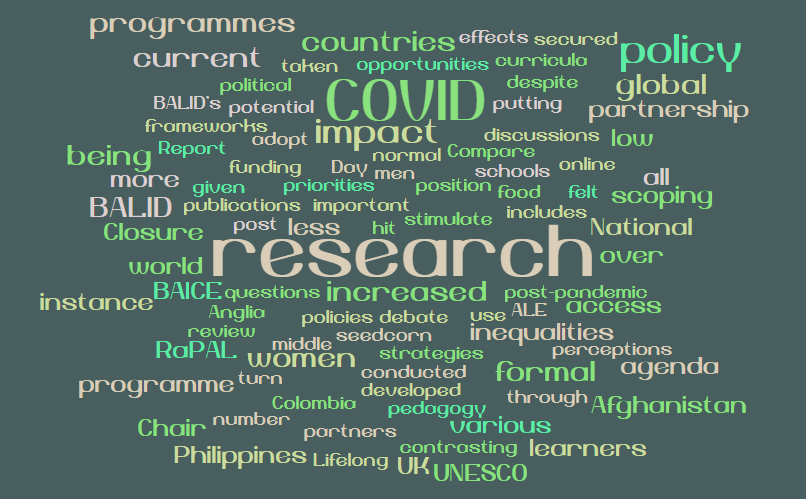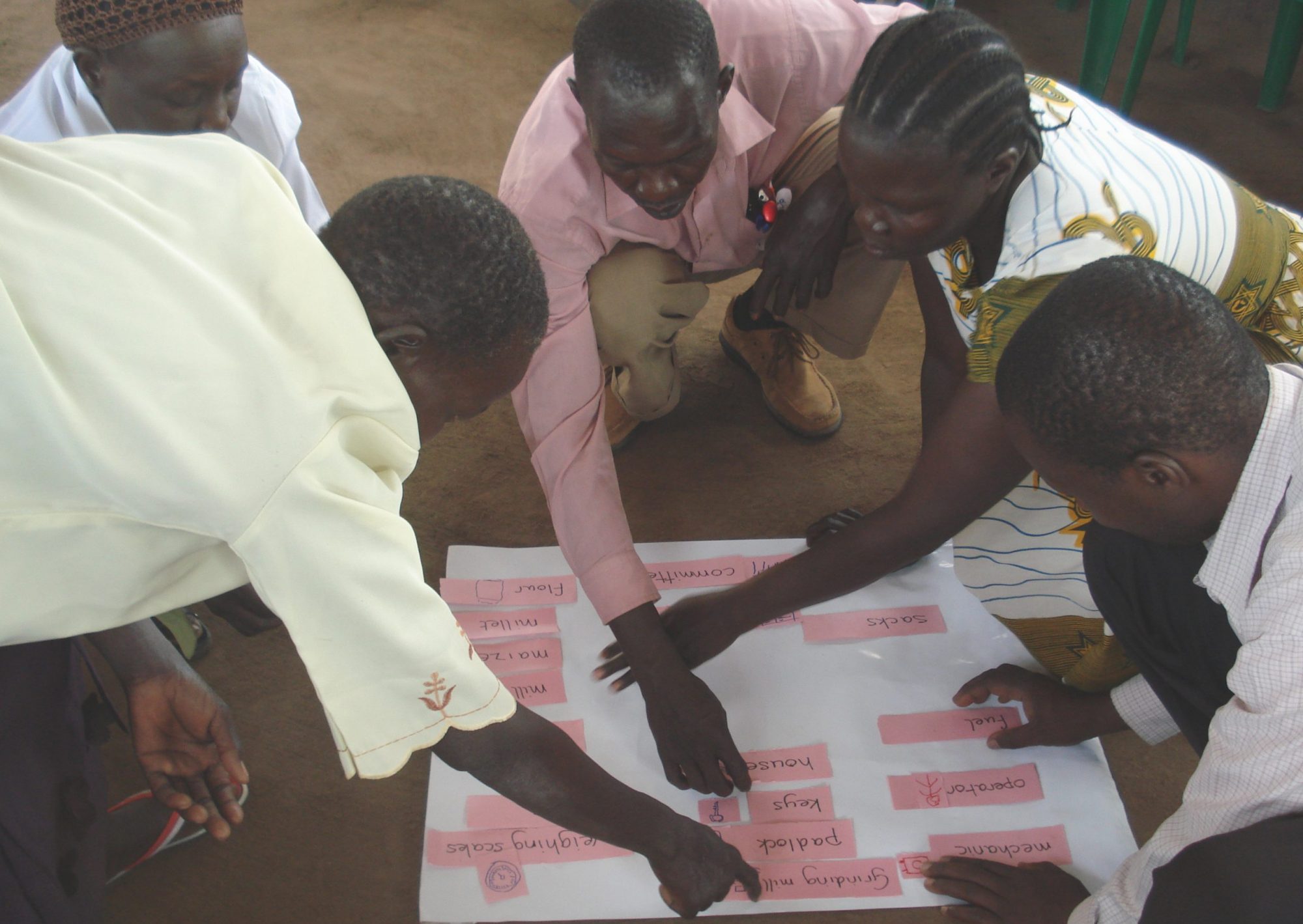Chris Millora and Katy Newell-Jones

As well as causing deaths and damaging economies, the current COVID-19 pandemic is triggering increased inequalities in education in low- and middle- and high-income countries. As governments and other institutions all over the world are now trying to develop frameworks to ‘recover’ and ‘emerge’ from the pandemic, education has, rightly so, taken a place in the agenda.
However, we note that discussions have focussed on mitigating the pandemic’s impacts on formal schooling and higher education, with less attention being given to adult learning and education (ALE) provision (which includes adult literacy). The Asia South Pacific Association for Basic and Adult Education (ASPBAE) recognised early in the pandemic that marginalisation of specific groups including adult learners, ethnic minorities and persons with disabilities is being amplified by the pandemic. Daniel Baril, Chair of the Governing Board of the UNESCO Institute for Lifelong Learning, has argued that adult learning has been largely forgotten in the ‘emerging post-pandemic political agenda’ and the next normal ‘could be a perilous time for ALE’. This is despite current statistics putting the global number of ‘illiterate’ adults at 773 million, the majority being women (http://uis.unesco.org/en/topic/literacy).
Conversations among BALID’s network suggest that ALE is being hit hard globally. Closure of adult and non-formal provision came before the closure of formal provision and their re-opening is expected to be considerably later than schools, colleges and universities. ALE providers and learners have less access to online learning resources than those in formal education. Although more men are dying from COVID-19, the impact on women is complex, with increased domestic violence, and increased poverty and food insecurity, which in turn is impacting on the ability of women to access ALE. The impact of the pandemic has been felt in ALE programmes all over the world and many have developed innovative interventions to respond to these situations. In Colombia, for instance, Camacol’s Obras Escuela programme, that provides opportunities for construction workers to learn literacy in their workplace, has moved its service delivery to mobile phones, still maintaining the strong relationship built between the facilitators and the learners.
According to the latest Global Report on Adult Learning and Education (GRALE), the delivery of ALE provision is dependent on the priorities of both governments and civil society working in partnership. In low and middle-income countries, this commitment is fuelled by a shared understanding within academia, policy and practice that ALE has a strong role to play in community strengthening and redressing inequalities, even more so post the COVID-19 pandemic. This year’s International Literacy Day, for instance, have asked important questions such as ‘How can we effectively position youth and adult literacy learning in global and national responses and in strategies for the recovery and resilience-building phase?’.
Recognising the importance of understanding how ALE programmes have been affected by the pandemic, BALID is delighted to have just secured seedcorn funding from BAICE for a scoping study of the ongoing and potential impact of COVID-19 on adult learning and education programmes in the contrasting contexts of Afghanistan, the Philippines and the UK. The research will be conducted in partnership with the UNESCO Chair in Adult Literacy and Learning for Social Transformation at the University of East Anglia (UK), Transformare in the Philippines and the Afghan National Association for Adult Education in Afghanistan (ANAFAE) and Research and Practice in Adult Literacy (RaPAL).
This scoping research has the following aims;
- To develop an overview of the current policy and programme provisions relating to ALE in the various countries through a review of relevant documents and materials,
- To understand various actors’ perceptions of how (and to what extent) COVID-19 is affecting ALE programmes in its various aspects such as programming, finance, participation, pedagogy, curriculum and innovation,
- To develop policy and practice recommendations, based on the research findings, on how ALE programmes/policies could better cope with the challenges of the pandemic and its future effects.
It is intended that policy and practice briefings, arising from this research, will stimulate debate among stakeholders in each of the three countries.
Policy makers, in each country, will be encouraged to review and amend existing policies on ALE in the light of the findings from this research.
Practitioners will be encouraged to adapt curricula, adopt alternative learning techniques, and explore the use of new technologies, thereby enhancing existing ALE programmes.
The outcomes of this research will be disseminated through the networks of BALID and the research partners and also in 2021 through publications in by RaPAL and the BAICE journal Compare.

